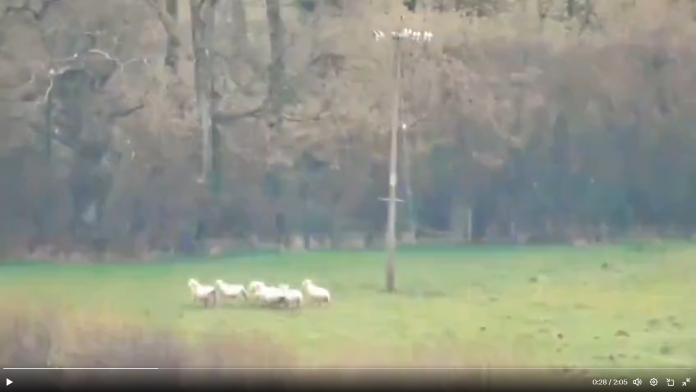Fox hunting, a practice deeply embedded in British rural tradition, has a long and storied history in Dorset. This county, with its rolling hills, dense woodlands, and open fields, has long been considered ideal terrain for the sport. However, while fox hunting was once celebrated as a symbol of rural life and social status, it has become a deeply divisive issue, repulsing many and sparking fierce debate about animal welfare, tradition, and ethics.
The Origins of Fox Hunting in Dorset
Fox hunting in Dorset dates back to the 18th century, when it evolved from a necessity to a leisure activity. Initially, foxes were hunted to control their numbers, as they were seen as pests threatening livestock. However, by the late 1700s, fox hunting had become a formalised sport, particularly among the landed gentry. The thrill of the chase, the camaraderie of the hunt, and the display of horsemanship and hound training turned it into a social event.
Dorset, with its varied landscape, became a popular destination for hunts. The county’s extensive farmland and hedgerows provided perfect cover for foxes, while the open countryside allowed for exhilarating pursuits. Hunts such as the Cattistock Hunt (see below), established in the early 19th century, became institutions, attracting wealthy landowners and aristocrats. The sport was not just about hunting; it was a cultural phenomenon, complete with its own rituals, attire, and etiquette.
The Height of Popularity
By the 19th and early 20th centuries, fox hunting had reached its peak in Dorset and across Britain. It was seen as a symbol of rural identity and a way of life that connected people to the land. The hunts were often grand affairs, with participants dressed in traditional red coats (or “pinks”) and mounted on finely bred horses. The hounds, bred for their keen sense of smell and stamina, were the stars of the show.
For many in Dorset, fox hunting was more than a sport; it was a social event that brought communities together. Hunt balls, fundraisers, and other associated activities became integral to rural life. However, even at its height, fox hunting was not without its critics. Some saw it as a cruel and unnecessary pursuit, but these voices were largely drowned out by the sport’s popularity and cultural significance.
‘Hunts have complete disregard for the welfare of all animals and people’s property! The Cattistock Hunt opened the gate to let their hounds follow the scent of fox through a field of horses, then continue into a field of sheep during lambing season!’
Hunts have complete disregard for the welfare of all animals and people's property!
— Weymouth Animal Rights (@Weymouthanimalr) March 10, 2025
The Cattistock Hunt opened the gate to let their hounds follow the scent of fox through a field of horses, then continue into a field of sheep during lambing season!https://t.co/sVP4wghLNS pic.twitter.com/BKr68cTGck
The Turning Tide: Animal Welfare and Public Opinion
The latter half of the 20th century saw a dramatic shift in public attitudes towards fox hunting. As animal welfare concerns gained prominence, the sport came under increasing scrutiny. Critics argued that fox hunting was inherently cruel, causing unnecessary suffering to foxes. The use of packs of hounds to chase and kill foxes was seen as barbaric, particularly in an era when more humane methods of pest control were available.
Dorset, like much of rural Britain, became a battleground for this debate. Animal rights activists began to protest hunts, often confronting hunters and disrupting events. The formation of groups such as the League Against Cruel Sports and the Hunt Saboteurs Association brought national attention to the issue. Images of foxes being torn apart by hounds and the perceived elitism of the hunting community further alienated the public.
The Ban and Its Aftermath
In 2004, the Hunting Act was passed, making it illegal to hunt wild mammals with dogs in England and Wales. This was a landmark moment for animal welfare campaigners, but it also sparked outrage among hunting enthusiasts. In Dorset, as elsewhere, many saw the ban as an attack on rural traditions and a way of life. Some hunts adapted by focusing on trail hunting, where hounds follow a pre-laid scent rather than a live fox. However, accusations of illegal hunting persist, with critics arguing that some hunts use trail hunting as a cover for traditional fox hunting.
The ban has not ended the controversy. Supporters of fox hunting argue that it is an effective form of wildlife management and an important part of rural heritage. They also claim that the ban has led to job losses and economic decline in rural areas. Opponents, however, maintain that the sport is cruel and outdated, with no place in modern society.
Why Fox Hunting Repulses So Many
The repulsion many feel towards fox hunting stems from a combination of ethical, emotional, and cultural factors. At its core, the sport involves the deliberate pursuit and killing of an animal for entertainment, which many find morally indefensible. The graphic nature of the kill, often involving packs of hounds, is particularly distressing to animal lovers.
Additionally, fox hunting is often associated with class and privilege. The image of wealthy landowners galloping across the countryside while foxes are torn apart has led to perceptions of elitism and insensitivity. For many, this reinforces a divide between rural and urban communities, with fox hunting symbolising an outdated and unjust social order.
In Dorset, as in the rest of the UK, the debate over fox hunting continues to evoke strong emotions. For some, it is a cherished tradition that connects them to the land and their ancestors. For others, it is a cruel and archaic practice that has no place in a compassionate society. As attitudes towards animal welfare continue to evolve, the future of fox hunting in Dorset remains uncertain, but its history and legacy will undoubtedly continue to provoke discussion and controversy for years to come.







